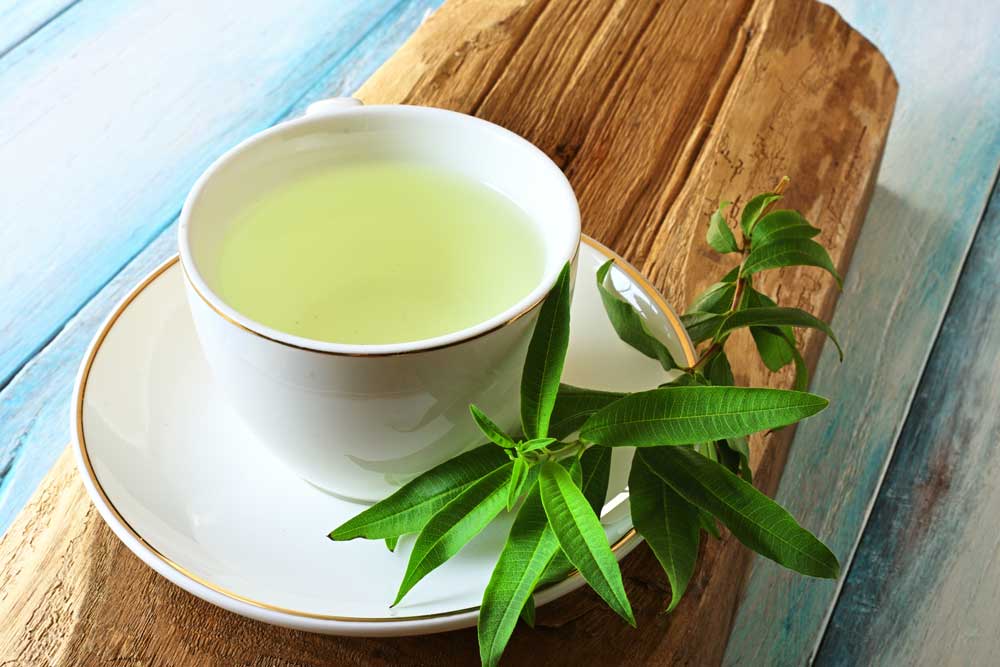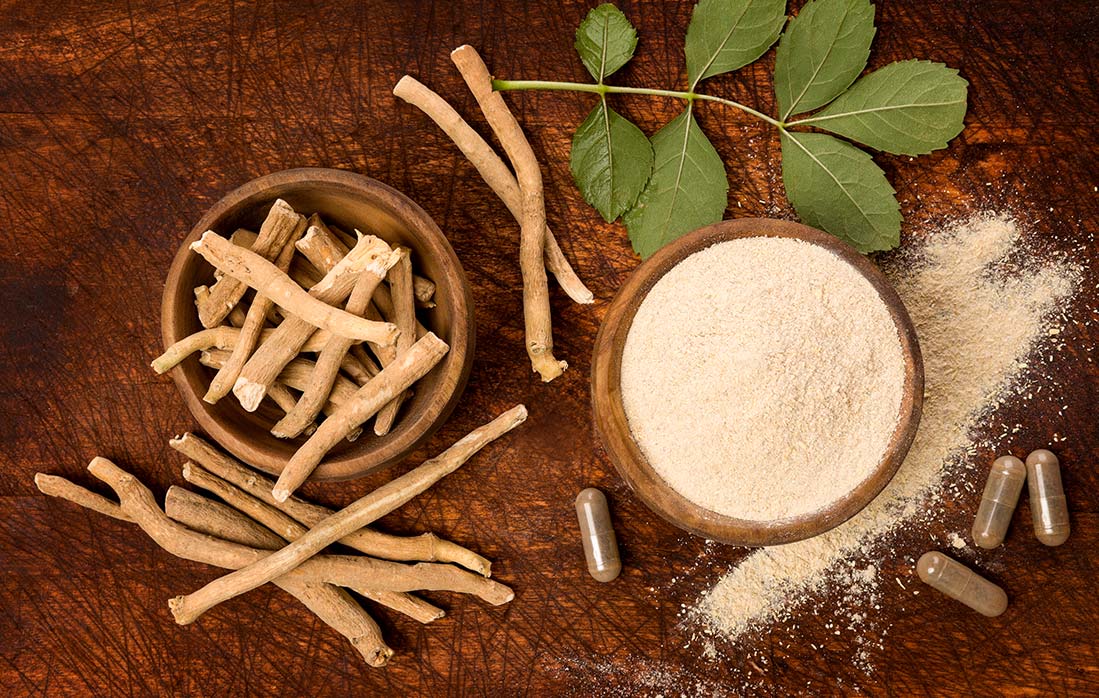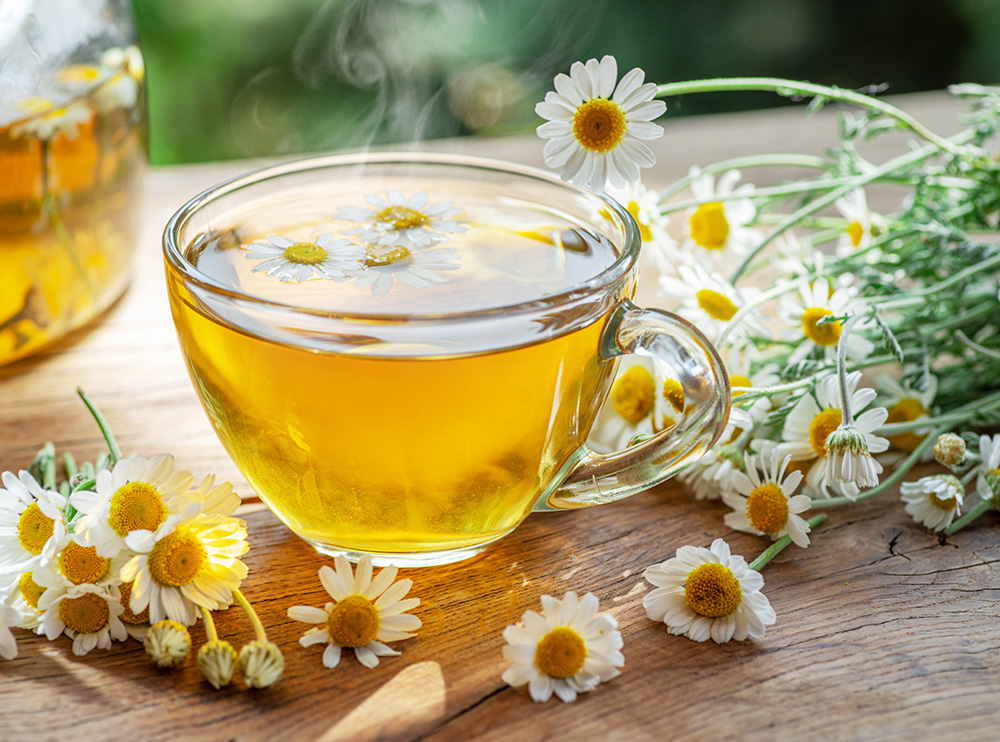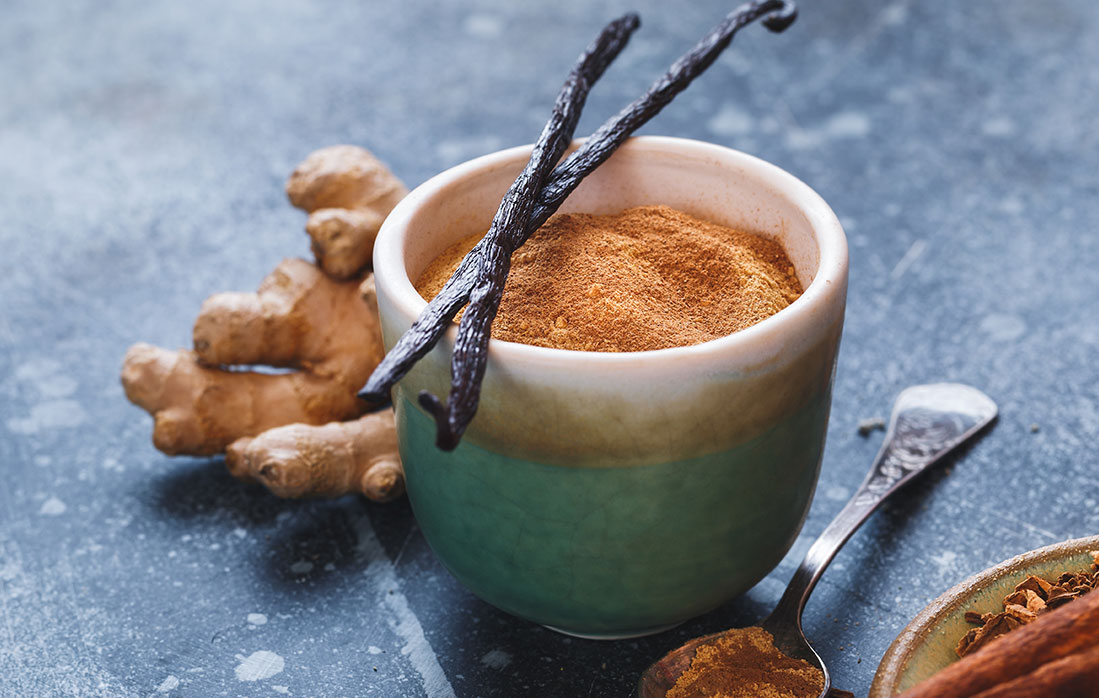
If there’s one thing that I love, it’s a good cup of herbal tea. Now, I am a coffee drinker through and through, but past a certain time of day, I avoid consuming caffeine as a part of my sleep hygiene routine. This means that I turn to herbal teas as my hot beverage of choice during the afternoons and evenings. Beyond being a fun treat to give myself during the day, it turns out that herbal teas might have some pretty neat health benefits (beyond just being delicious).
In a recent Vogue India article, psychonutritionist Itziar Digón and Laura Parada, nutritionist at Slow Life House, claimed that drinking herbal tea after you finish your evening meal can help curb your appetite and improve your digestion which could help you “stay fit.” (1) But, does drinking herbal tea after bed really help you lose weight?
What Are Herbal Teas?
As it turns out, herbal tea is not actually tea at all. True tea comes from the leaves and buds of the tea plant, or Camellia sinensis. Herbal tea is not made from this plant, and comes from blends of dried fruit, flowers, spices and herbs, called tisanes. (2) Popular types of herbal teas include:
- Peppermint
- Ginger
- Chamomile
- Hibiscus
- Lemon
- Rooibos
Does Herbal Tea Help You Lose Weight?
The answer is…probably not. In a study published in 2014, researchers found that certain styles of preparing green tea were potentially conducive to weight loss. Specifically the researchers found that “Those in the green tea group lost on average 0.2 to 3.5 kg more than those in the control group over 12 weeks.” However, the researchers also found that, “In most studies, the weight loss was not statistically significant.” (3)
The study also noted that the results of the study does not apply to cups of green tea prepared traditionally, which means that these results probably aren’t applicable to the average person. “All trials used preparations of green tea that involved extraction procedures that yielded concentrations of active ingredients (catechins and caffeine) that were greater than that produced in a traditional cup of green tea.” (3) Green tea is also fairly caffeinated, and you should probably avoid drinking a significant amount of caffeine before you go to sleep.
If you’re looking to lose weight, you’re best off consulting your doctor for strategies or referrals to dietitians and nutritionists who can help you achieve your goals.
Does Herbal Tea Help With Digestion?
Jamie Mok, MS, RDN, RYT and Spokesperson for the Academy of Nutrition and Dietetics, told Sleepopolis that enjoying peppermint or ginger teas after a meal can help aid in digestion. “Peppermint tea, for example, is known to help relax the digestive system and may relieve an upset stomach, and in some cases, symptoms of irritable bowel syndrome (IBS). Ginger tea has been long used as a natural remedy for nausea, bloating and gas.” However, there is still a need for more research to be done to confirm the benefits of these teas. (4)
So, while herbal tea might not help you lose weight in a meaningful way, there is a very real possibility that they might be able to ease some GI distress that might occur after eating your evening meal.
Also, be aware that herbal teas may have a different impact on your body than it will others. Mok gives the example of how peppermint tea might be soothing for most people’s stomachs, but for someone who has gastroesophageal reflux disease (GERD), peppermint tea can make acid reflux worse.
Again, it’s best practice to consult your doctor before using herbal teas as a replacement for traditional medicines and treatments for any GI issues you might be having.
What Are Other Benefits of Herbal Tea?
Mok notes that other potential benefits of herbal tea include “antioxidant properties, digestive aid, relaxation, and stress reduction, as well as contributing to overall hydration.” Specifically, Mok calls out the benefits of hibiscus tea, which has been linked to several potential heart-health benefits. (4)
Are Herbal Teas Safe?
Yes, herbal teas are generally safe to consume, however it is always a good practice to be aware of what you are putting in your body and how it affects you. Mok encourages people to “approach [herbal teas] with a critical eye” since “many herbal tea beverages are essentially sugary drinks with little nutritional value.”
Mok also wants consumers to know that, “Due to variability and lack of strength in studies, the dosage and frequency of herbal tea consumption for specific health benefits are often unclear to due limited research.” (4)

Everything You Need To Know About Ashwagandha And Sleep

“Sleepy Sorbet” Is Everywhere, But Does It Work? I Tried It Out Myself

Chamomile Tea and Sleep

Not Into Lavender for Better Sleep? Try Vanilla Instead
Sources
- Morales, Ana. Drinking herbal tea after dinner can improve your sleep quality, according to experts. Vogue India. July 29, 2024. https://www.vogue.in/content/drinking-herbal-tea-after-dinner-can-improve-your-sleep-quality-according-to-experts
- The health benefits of 3 herbal teas. Harvard Health Publishing. October 21, 2021. https://www.health.harvard.edu/nutrition/the-health-benefits-of-3-herbal-teas
- Tannis, Jurgens, Whelan Anne, M. Can green tea preparations help with weight loss? Canadian Pharmacists Journal. 2014. DOI:10.1177/1715163514528668
- Mok, Jamie. Personal Interview. August 1, 2024.




























